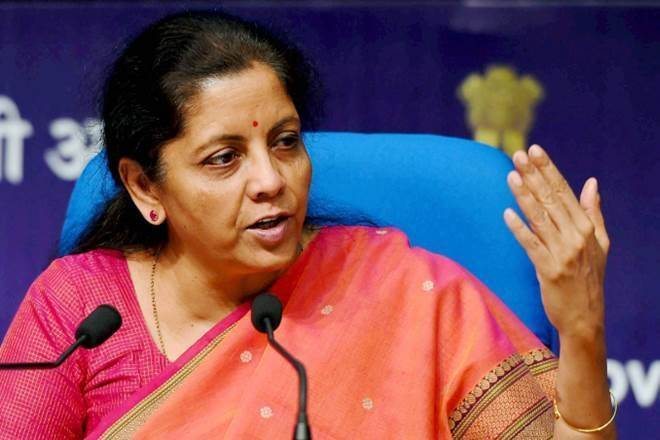Union Finance Minister Nirmala Sitharaman warned Indian industry of the impending cost to sectors such as steel from tariff walls raised by developed economies, and she asked for suggestions on how the government could assist in the green transition of such sectors.
Without naming the Carbon Border Adjustment Mechanism (CBAM), which the European Union agreed to on Tuesday, Sitharaman stated that there were countries that wanted to fund their transition from non-green to green production of materials such as steel by raising tariff walls against countries that sent their products as part of normal export.
“When you export steel, you will be facing tariff walls in the name of climate action tax. This is going to affect us. For India, therefore, both for meeting our nationally determined commitments and also for industry to quickly understand the necessity for resetting yourselves so that tariff walls coming up newly in the name of climate change is something which we should face and be ready for,” Sitharaman said at an event hosted by the Federation of Indian Chambers of Commerce and Industry (Ficci).
“When you are readying yourselves for it, there is a role that the government and industry can play together. Diplomacy helps, and so does policy. I want industry to be fully seized of it, not just highlighting the burden that is going to fall on you, but how do we reduce the burden of that cost which is going to come on you,” the finance minister said.
The European Commission reached a political agreement on the CBAM on Tuesday as part of a plan to decarbonize economies by 2050. The CBAM will impose a carbon price on imports of products such as cement, iron and steel, aluminium, fertilisers, electricity, and hydrogen, ensuring that ambitious climate action in Europe does not push carbon-intensive production outside Europe.
Many countries, however, are likely to challenge any such action at the World Trade Organization because it would have a direct impact on their industry and exports if implemented gradually beginning in October next year.
According to one estimate, India will suffer the greatest loss of exports ($3 billion), followed by Brazil and South Africa. Ficci stated in a recent ESG (environmental, social, and governance) report that trade competitiveness concerns could reshape the incentives of Indian actors once CBAM is implemented.
“Indian exporters will see direct links between international competitiveness and the extent of decarbonisation within their firm and supply chain, and within the electricity system of the states in which they operate,” according to the report.
“This will impact decisions on the question of where production within India takes place: private firms may avoid states which have low economic freedom in purchasing renewables and where renewables make up a lower fraction of discom supply.” it added.
Sitharaman stated that her upcoming Budget would continue to push growth in the spirit of previous Budgets.
“We are going to set the template set earlier but follow it and take it further for India’s next 25 years,” she said.
The minister asked industry to devise strategies for how businesses in developed countries could consider India as a production or sourcing hub in the face of Western recession fears.
“As much as you are preparing yourself for a long-drawn recession in the developed world, I think it is also the best time for you to work out strategies for drawing those manufacturers from there to India,” she added.

